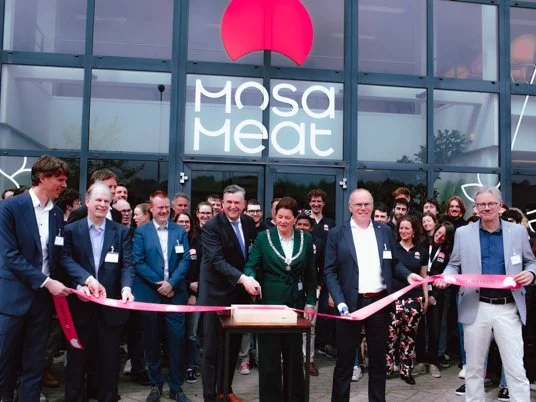Publication: Alt-Meat
My role: Writer
'A powerful trigger
of customer loyalty'
Why would a company that's raised more than €160 million — €40 million just last April — need to engage in crowdfunding?
The question has bubbled up around Maastricht-based cultivated meat maker Mosa Meat’s recent crowdfunding round, which secured €1.5 million in just 24 minutes on Crowdcube.
Mosa Meat responded to the question on LinkedIn, writing, "We're actually not crowdfunding out of necessity... This campaign is about inclusivity: allowing those who have supported us from the start to help shape the future of food alongside us."
And, honestly, that’s brilliant.
With crowdfunding, “a mechanism of psychological ownership is activated whose main contributor is commitment. In this perspective, equity crowdfunding is a powerful trigger of customer loyalty,” UK researchers studying the investment strategy wrote in The International Journal of Entrepreneurship and Innovation.
Mosa Meat’s 1,300+ new investors are now, indeed, fiercely loyal to Mosa. They’ll tell their friends and family. They’ll purchase the product when they see it on shelves. They’ll wear tee-shirts and ball caps with Mosa’s logo.
“Crowdfunding offers much more than just money due to the investor pledge to a company whilst becoming a partner of the entrepreneur,” the researchers explain. “Put simply, the community of investors represents the added value of equity crowdfunding.”
And in 2025 — with governments around the world toying with cultivated meat bans and investors losing their stomach for the sector — fans and customers willing to loudly and proudly support your cultivated meat company is no small thing.
Cultivated meat has several huge hurdles to overcome. Next to government regulations, consumer acceptance is among the highest. But crowdfunding can help there, as well.
In a study of 1,500 consumers, marketing researchers publishing in Harvard Business Review found that participants were willing to pay about 21% more for the same product when it was described as crowdfunded, compared to when no funding source information was present. The reason? "Consumers think if many people invest in a product it 'must be good.'"
Crowdfunding becomes “a tool to increase the loyalty of the community around a project.” With its campaign, Mosa has created a community that will support and champion the company through the difficult months and years as cultivated meat moves from feared science fiction into reality.
So, why would a company that's raised hundreds of millions need to engage in crowdfunding?
Because they’re smart.
